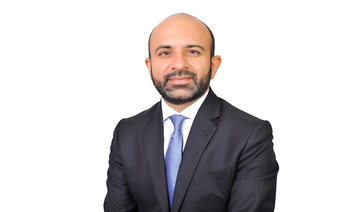RIYADH: Saudi Arabia is spearheading transformative initiatives in order to enhance innovation in procurement and supply chains across various sectors, an industry forum was told.
At the Chartered Institute of Procurement & Supply’s MENA Conference in Riyadh, a series of presentations and panel discussions underscored the vital importance of ensuring the security of supply chains, boosting local content, and streamlining government procurement spending in order to pave the way for a prosperous future.
From water desalination to real estate development, the Kingdom is leveraging advanced technologies to optimize operations and drive economic growth, delegates heard.
Transforming the real estate sector
The National Housing Co. has embarked on a journey to optimize the supply chain in the Saudi real estate sector, according to the firm’s Supply Chain and Business Support General Manager Maan Al-Othimeen.
He took to the stage to outline the organization’s strategic initiatives aimed at fostering local production efficiency and supporting small and medium enterprises in order to create the infrastructure needed to support the government’s development goals in the construction sector.
The implications of these efforts are not limited to the construction supply chain alone, rather, they translate into a foundation on which the nation will be able to build its hospitality and giga-project goals, he said.
Beyond that, by 2030, NHC aims to deliver 600,000 housing units, further catalyzing the sector’s growth and stimulating the economy.
NHC is empowering local businesses and promoting national workforce participation by introducing new initiatives, Al-Othimeen said, adding: “In promoting local production efficiency by supporting local factories we have launched Mawad, an online platform linking contractors, real estate developers, local factories and suppliers to streamline purchases, expand choices and stabilize market prices.
“In terms of financing, we offer financial solutions in partnership with government entities, banks and financial firms to encourage local businesses, including developers, contractors and factories and improve project completion in the real estate development sector.
“We are also building technologies through awareness campaigns while supporting local service providers.”
As a testament to its success, through the Mawad platform, the company has managed to reach over $500 million in transaction values, signed 113 memorandums of understanding with local factories, and achieved average savings of 21 percent, the general manager added.
Moreover, NHC’s collaboration with Tawteen — Saudi Arabia’s human capital localization agency — and its focus on nurturing the next generation of workforce through initiatives like Wa’ed, demonstrates the organization’s commitment to sustainable development and talent empowerment.
Al- Othimeen added: “NHC employees undergo training and factory tours in collaboration with local manufacturing products to gain insight into product lines.”
As the Kingdom continues to embark on a journey of transformation of its hospitality, tourism and real estate sectors, it will require a strong basis for its supply chains and workforce to see it through, he noted.
“KSA’s construction sector is projected to grow at 5.8 percent between 2023 and 2030, it is projected that the construction market value will grow from SR189 billion ($50.39 billion) in 2023, to SR281 billion by 2030. By 2030, 28 percent of this figure will be represented by hospitality, while 33 percent will be residential, 24 percent will be energy and utilities, 11 percent will be infrastructure, and 4 percent will be industrial,” he said.
In order to meet the growing demand for building materials, NHC plans to establish an industrial park specialized in the manufacturing of key building materials, the general manager added.
The industrial park will be an integrated development with three asset classes: industrial, logistic and urban class.
Government procurement
Under the framework of Saudi Arabia’s Vision 2030, the government has implemented initiatives to enhance its procurement strategy.
Ahmed Al-Harbi, executive director of government procurement efficiency, highlighted the significant strides made in digitalization and local content development at the forum.
This work has yielded tangible results, including cost savings and improved efficiency, Al-Harbi explained, adding: “Through all these transformations, information and data that have happened over the past years, it is a journey in the Kingdom that is still ongoing.
“It began in 2018 through the digitization of the procurement industry which was largely made possible through Etimad, which is a unified end-to-end digital platform introduced by the government to assure efficiency and transparency, serving both the government and private sector.
“It allows for sourcing through the Etimad e-market, government travel platform, Etimad e-auction, online tenders as well as digital contracting and an online payment platform.”
Moreover, the government’s emphasis on standardizing purchasing templates, introducing new methods, and enhancing payment processes has streamlined operations and fostered transparency in government procurement, he noted.
With transformative initiatives across key sectors, the Kingdom is poised to lead the way in procurement and supply chain innovation, driving economic diversification and sustainable development, he further explained.
A key achievement throughout the journey, according to the executive director, is an improvement of cost efficiency, with more than SR20 billion in savings witnessed by adapting category management methodology.
Local content has also been supported through 35 industry localization and knowledge transfer agreements signed by the authority and over 1,000 items added to the mandatory list of national products, he said.
There has also been an improvement in procurement efficiency and effectiveness, with 15 percent reduction in life cycle, from tender to award, and 27 percent reduction in tenders’ cancellation rate, he added.
Al- Harbi said: “In the last three years, when we first started, there was a large amount of expenditures, we spent — compared to previous years — over SR7 billion annually in procurement spending on over 3,000 projects, and we were of course supporting over 300 government initiatives.”
He went on: “These expenses have covered over 38,000 products and services that were provided. The number of POs (procurement orders) annually was 15,000 with over 600 procuring government entities, over 180 registered suppliers and four e-platforms.”
Revolutionizing water desalination
The Saudi Water Authority has undertaken a comprehensive digital transformation of its supply chain operations.
Abdulrahman Al-Yousef, general manager of shared services and supply chain at SWA, highlighted the organization’s commitment to utilizing cutting-edge technology.
“Since we operate in a vital sector such as water desalination, our focus has been on enhancing efficiency and reliability through digitalization,” stated Al-Yousef.
“Through initiatives such as smart warehouses and automation, we have achieved remarkable results, including a 98 percent reduction in time and a 400 percent increase in storage efficiency,” he added.
SWA’s adoption of advanced analytics, artificial intelligence and Internet of Things integration has revolutionized procurement processes, reducing its lifecycle by 37 percent.
This transformation underscores the Kingdom’s dedication to ensuring accuracy and time efficiency in critical sectors.
Moreover, SWA’s continuous investment in renewable energy sources and eco-friendly technologies has positioned it as a global leader in sustainable water management.
With 33 production systems utilizing the latest eco-friendly technology, SWA is driving environmental stewardship while meeting the Kingdom’s growing water demands with an efficient, automated supply chain.



















